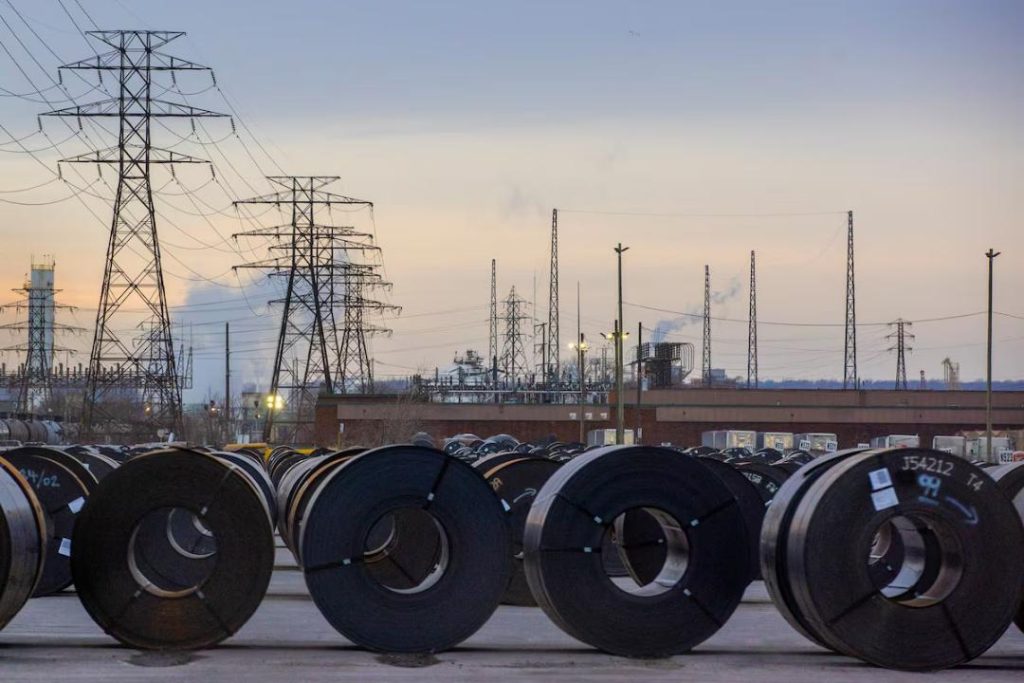
US Tariffs Hit Canada’s Steel & Aluminum Industry, Job Cuts Begin
The ongoing trade tensions between the United States and Canada have taken a severe toll on Canada’s steel and aluminum industry. The US tariffs on steel and aluminum imports have led to job losses in Canada, with at least 200 workers affected, according to Marty Warren, National Director of the United Steelworkers. The impact of these tariffs is far-reaching, and the latest job cuts are a stark reminder of the devastating consequences of the trade war.
One of the companies affected by the tariffs is the Canada Metal Processing Group, which has cut 140 jobs due to the “threat of incoming tariffs.” This move is a clear indication of the industry’s struggles to cope with the tariffs, which have made it difficult for Canadian steel and aluminum producers to compete with their US counterparts.
The tariffs, which were imposed by the US in June 2018, were initially intended to protect the US domestic steel and aluminum industries from what the US administration deemed to be unfair trade practices by other countries. However, the tariffs have had a disproportionate impact on Canada, which is one of the largest suppliers of steel and aluminum to the US.
Canada’s steel and aluminum industry is a significant contributor to the country’s economy, employing thousands of people across the country. The industry’s struggles due to the tariffs have far-reaching consequences, not only for the workers who have lost their jobs but also for the broader economy.
The latest job cuts at the Canada Metal Processing Group are a result of the company’s failure to secure a satisfactory deal with its US customers, who have been affected by the tariffs. The company had been working to find alternative markets for its products, but the tariffs have made it difficult for the company to compete with US producers.
The impact of the tariffs is not limited to the Canada Metal Processing Group. Other companies in the industry are also struggling to cope with the tariffs, and job losses are expected to continue in the coming months. The industry’s struggles are a clear indication of the need for the Canadian government to take immediate action to address the issue.
The Canadian government has been vocal in its opposition to the US tariffs, and has taken several steps to mitigate the impact of the tariffs on the industry. However, more needs to be done to support the industry and protect the jobs of Canadian workers.
The tariffs are not the only challenge facing Canada’s steel and aluminum industry. The industry is also grappling with the impact of the COVID-19 pandemic, which has disrupted global supply chains and reduced demand for steel and aluminum products.
The industry is also concerned about the impact of the upcoming tariffs, which are set to take effect on April 2. The tariffs, which were announced by the US administration in March, are expected to have a significant impact on the industry, and are likely to lead to further job losses.
Economists warn of greater fallout ahead, and the industry is bracing itself for the worst. The industry’s struggles are a clear indication of the need for the Canadian government to take immediate action to address the issue.
In conclusion, the US tariffs on steel and aluminum have had a devastating impact on Canada’s steel and aluminum industry, leading to job losses and economic uncertainty. The industry is struggling to cope with the tariffs, and the impact is far-reaching, affecting thousands of workers across the country. The Canadian government must take immediate action to address the issue and support the industry, or risk seeing the industry decline further.






